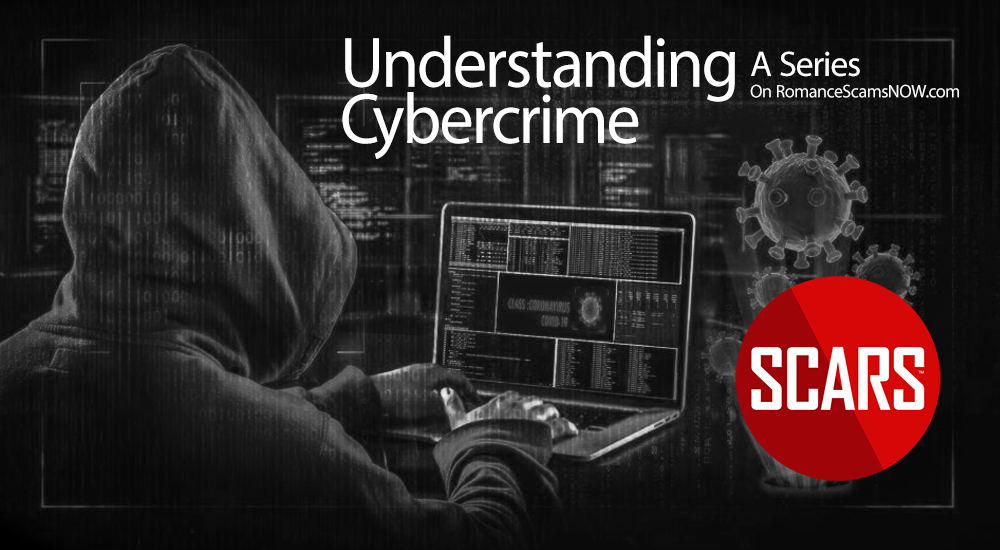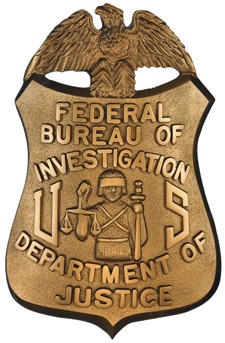Many Times Scam Victims Will Get A Call From Someone Claiming To Be From The FBI
These are often from call center scammers trying to pull a new scam on existing victims or on the general public.
Do Phone Scammers Pretend to be FBI Agents?
Yes, phone scammers often pretend to be FBI agents or other law enforcement officials in order to defraud individuals. This type of scam, known as “imposter Fraud or Government Impersonation Scam,” involves a scammer pretending to be a representative of a legitimate organization, such as the FBI, in order to obtain personal information or money from the victim.
In these scams, the scammer may claim that the victim has committed a crime or that there is a problem with their bank account or is following up on an investigation, and then ask for personal information or payment in order to resolve the issue. They may also threaten the victim with arrest or legal action if they do not cooperate.
It is important to be aware of these types of scams and to remember that the FBI and other law enforcement agencies do not contact individuals over the phone to demand payment or personal information. If you receive a suspicious call from someone claiming to be an FBI agent, do not provide any personal information and hang up immediately. You can report the call to the FBI at https://tips.fbi.gov/.
The FBI Won’t Ask You For Money — That’s A Scam
Unwanted calls are annoying — but when a caller says they’re an FBI agent collecting on a legal judgment entered against you, it’s also scary. No matter how urgent and serious the call sounds, neither the judgment nor the agent is real. Like other impersonation scams, FBI imposters are after your money and personal information, and they might even threaten to arrest you unless you pay immediately. (Again: it’s not real.) Read on to learn to spot the scam.
Scammers will try to get you to act first and think later. If you get a call like this:
- Know that government agencies don’t call and demand money or personal information. Even if you owe money, real government representatives won’t call to threaten to arrest you, freeze your accounts, or take your property.
- Never pay anyone who tells you to pay with gift cards, cryptocurrency, or wire transfers. No government agency, including the FBI, demands payment that way. Anyone who does is a scammer. Always.
- Don’t trust caller ID. Scammers use technology to fake the number they call from. Never call back phone numbers from your caller ID or voicemails.
- Check with the FBI if you think the call or email is real. If you’re worried, contact one of the FBI field offices to check out the call.
How Can You Spot A Fake FBI Agent That Calls You?
There are several ways to spot a fake FBI agent:
- Lack Of Proper Identification: FBI agents are required to carry official identification at all times. If the person claiming to be an agent does not have proper identification, or if the identification appears to be fake or altered, they are likely not a legitimate agent.
- Inability To Provide Details About Their Work: Real FBI agents should be able to provide detailed information about their work and the FBI in general. If the person claiming to be an agent cannot provide specific information or seems unsure about basic details, they may be a fraud.
- Requiring Payment Or Personal Information: The FBI does not require payment or personal information from individuals in exchange for its services. If the person claiming to be an agent asks for payment or personal information, they are likely a fraud.
- Unprofessional Behavior: FBI agents are expected to maintain a professional demeanor at all times. If the person claiming to be an agent is rude, aggressive, or disrespectful, they may not be a legitimate agent.
- Strong Foreign Accent: FBI agents are very well trained and educated. They speak professionally and will be clearly understandable. If someone speaks with a thick accent and uses unfamiliar jargon or slang they are not an FBI agent.
If you are ever in doubt about the authenticity of an FBI agent, you can contact your local FBI field office to verify their identity. You can also report any suspicious activity to the FBI at https://tips.fbi.gov/.
TIPS:
- Call the local field office and ask to be transferred to them.
- If they’re telling you they are an agent, ask them for their work email address as you have a police report you’d like to email them. If it doesn’t end in fbi.gov, there is your answer. No FBI agent uses Gmail or anything other than FBI.gov
How to Tell if an FBI Badge Is Real
Special agents of the Federal Bureau of Investigation (FBI) carry official badges that identify them as working for the organization.
However, there are counterfeit FBI badges that look authentic and are easily available for purchase online. Websites like Amazon have a policy against these counterfeit items, but they continue to flood the internet. With a fake badge and identification card, someone can impersonate an FBI agent and carry out crimes including home invasion robberies, child abductions or terrorist acts. Knowing what to look for in an authentic FBI badge can make all the difference in the safety and security of you and your family.
Impersonating a federal agent to take advantage of or otherwise deceive someone is a specific federal crime. If convicted, the person doing so can receive a fine and up to three years in prison.
TIP:
- Ask the person on the phone to text or message you a photo of their badge and ID card. A real agent would not do that, since it violates federal law.
- Ask them for their badge number. Actually, they will have an ID Number. It will be on the FBI ID card. Having this will make it easier to call the local FBI field office and ask to speak to that Special Agent. Contact one of the FBI field offices to check out the call. If they say they do not have such a number it is a scammer.
- Ask them for their “military rank” – FBI agents do not have one, but a scammer will not know that.
If they show you a badge in person or in a photo:
If someone claiming to be an FBI agent flashes a badge, get a closer look at it. A real FBI agent won’t hand you the badge outright, but will allow you to view it from a slight distance. If you are in your home, make sure to look at the badge through a window or peephole and do not open the door until you are certain you are talking to a real FBI agent.
Remember, it is against federal law to photograph or duplicate federal ID cards (this includes the military too.)
Real Badge Small Details
We include this just for your curiosity!
The details of the agent’s badge:
- The FBI Badge will come in a small billfold with the agent’s identification card.
- An authentic FBI badge is small in size and gold in color.
- The badge should read “Federal Bureau of Investigation” in full at the top. If it is abbreviated to read “FBI,” the badge is a fake.
- Also, if the gold looks chipped or dull, chances are it is made of cheaper materials than the organization’s official badge which means it is likely fraudulent.
- Everything on the badge should be embossed (pressed in), but not engraved.
- The badge should have a bald eagle at the top with a blindfolded Lady Justice directly underneath and at the middle of the badge holding a scale and torch. She should be flanked by the letters “U” and “S” on either side.
- At the bottom of the badge, the words “Department of Justice” should appear.
Real I.D. Card Small Details
Accompanying the badge will be the agent’s identification card. It will contain the agent’s name, badge number and photo. Make sure the photo matches the face of the agent who is holding it.
Fraudulent cards can look pretty close to the real thing. The best way to ensure an FBI card and badge are legitimate is to contact an FBI field office and ask for verification of the agent’s badge number and identity.
To locate an FBI field office near you, consult an online directory on www.FBI.gov or visit the FBI’s website. If the FBI field office can’t identify the agent with the information you’ve given, make sure to call 911 and report the incident immediately to your local police.
Some Basic FAQ Facts That Every FBI Agent Would Know
When was the FBI founded?
On July 26, 1908, Attorney General Charles J. Bonaparte appointed an unnamed force of special agents to be the investigative force of the Department of Justice. The FBI evolved from this small group.
How is the FBI organized?
The FBI is headquartered in Washington, D.C. The offices and divisions at FBI Headquarters provide direction and support to 56 field offices in big cities, more than 350 smaller offices known as resident agencies, several specialized field installations, and more than 60 liaison offices in other countries known as legal attachés.
How many people work for the FBI?
The FBI employs approximately 35,000 people, including special agents and support professionals such as intelligence analysts, language specialists, scientists, and information technology specialists.
Is the FBI a type of national police force?
The public may refer to the FBI as a national police force for the United States, but it is not. Scammers would not know that.
The FBI is a national security organization that works closely with many partners around the country and across the globe to address the most serious security threats facing the nation. We are one of many federal agencies with law enforcement responsibilities.
Summary
This should give you enough information to verify if an FBI Agent is real or a scammer!
Stay safe out there!
To Learn More Also Look At Our Article Catalogs
Scam & Crime Types
More SCARS
- ScamsNOW Magazine – ScamsNOW.com
- ContraEstafas.org
- ScammerPhotos.com
- AnyScam.com – reporting
- AgainstScams.org – SCARS Corporate Website
- SCARS YouTube Video Channel












Leave A Comment